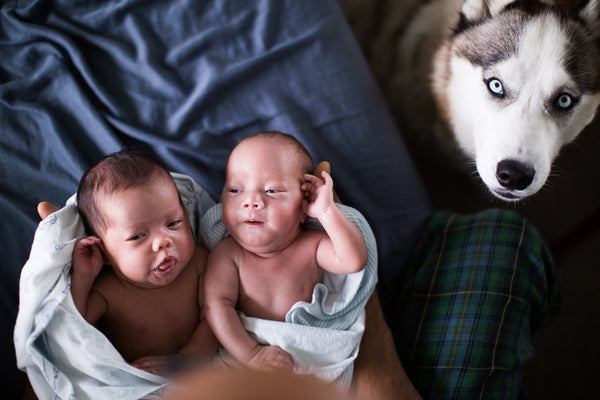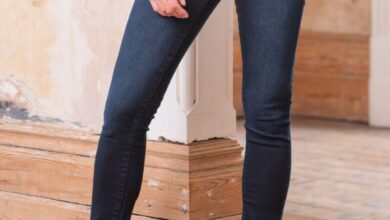How to Help Prepare the Four Pawed Sibling

Preparing a big “sister” or “brother”- who happens to be a dog- for the arrival of a new baby takes time and consideration. Like all older siblings, dogs are used to being the center of their parent’s attention. Like all older siblings, dogs can get jealous when the focus is taken away from them.
A little planning and preparation of your dog before the baby arrives is a good investment. You can’t read them books or videos, but there are ways to ease the transition. We’ve talked to hundreds of dog owners over the years, done a little research of our own, and collected some easy and effective tips to help your dog welcome the newest family member into their home. with open feet.
Older Sibling Classes
Depending on your dog, and who knows them better than you, some parents recommend signing your dog up for basic obedience classes. Depending on the size of your dog, this can help ensure that your dog understands the correct behavior. This is especially important when mommy or daddy is holding the new baby.
Changing Routines
Consider your dog’s routine and any possible changes that may occur, and make gradual changes to prepare for the baby. Things to consider: feeding time and place (remember, once the baby starts crawling, he will have access to bowls on the floor), walking time, who walks and where the dog sleeps are a few activities that can change with a new baby. Again, as with any older sibling, it’s best to make the changes before the baby arrives so the dog doesn’t associate the new changes with the new baby as this can cause jealousy and unwanted behaviors.
Here a hard reduction in the amount of attention and playing time is also recommended. When your newborn comes home the lack of attention your dog receives will not be a shell shock.
New Scents and Sounds
It’s important to get your dog used to the baby’s scent. When the baby is born, if there is time, bring something of the baby to your dog to smell – a hat, a blanket, basically anything that is attached to the baby’s scent. This will help your dog get used to the smell of the new member joining their family. Dogs are all about scent.
Even playing tape recordings of baby sounds isn’t a bad idea. This will help your dog adjust to the new noises and sounds of your newborn once they are home.
Sibling Space
Before the arrival of the baby, teach your dog “to go place”. It’s a designated place for your dog to go when you’re busy with your newborn, whether it’s changing diapers, nursing or trying to get the baby to sleep. Having toys in the designated area to keep your dog occupied is strongly suggested. Or you can always reward with treats.
When you get home from the hospital, greet your dog first without the baby. Again, like any sibling, your dog can be excited, and sometimes excited dogs jump. You’ll be tired, and that’s not all you need. Some people suggest that the first time your dog meets their new sibling, it’s a good idea to put the dog on a leash. Some wait a few days before they let their dog meet the new addition to the family. Once the dog gets used to the baby’s smell, allow the dog to sniff the baby while on a leash, but with an adult nearby.
Do your best to show your dog lots of attention when the baby is around. And finally, remember, baby toys look like dog toys-and vice versa, so, try not to scold your dog if they take the baby toys, and, once the baby starts crawling, get used to the opposite !


A well-trained dog can be a baby’s best friend, and protector too!





